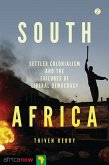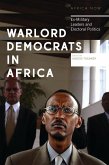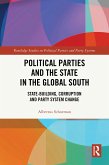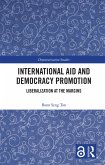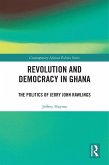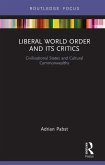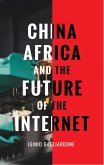Democratic institutional forms and processes are increasingly widespread in Africa as dictatorial regimes have been forced to give way as a result of popular mobilization and external donor pressure. However the premises of the African scholars whose empirical research and analytical explorations are included in this volume are that democratic form and democratic substance are two different things; Western-derived institutional forms are neither necessarily the most appropriate nor the most practical in the current African context; and rooting democratic norms in the political cultures of African polities raises socio-cultural issues with which political scientists must engage.
This book explores various critical questions in the context of particular elections and particular countries as diverse as Ghana, Nigeria, Kenya, the Congo, Cameroon and the Central African Republic. They include the continuing impact of police state apparatuses following democratic transition; factors influencing African voters' attitudes and behaviour; the impact of incumbency on electoral competition; women's electoral participation; the phenomenon of often very limited party programmatic choice in the context of huge social diversity and multi-party competition; and the controversial issues around the transplantation of liberal democratic institutions. Underlying these issues is the fundamental question of whether democratic processes as currently practised in Africa are really making any significant difference to the African struggle for economic, social and cultural progress.
This volume is valuable for the original perspectives of its African contributors; the issues it explores; and the concrete democratic experiences it analyses; and the challenges it makes to the existing concepts, paradigms and practices of liberal democracy.
This book explores various critical questions in the context of particular elections and particular countries as diverse as Ghana, Nigeria, Kenya, the Congo, Cameroon and the Central African Republic. They include the continuing impact of police state apparatuses following democratic transition; factors influencing African voters' attitudes and behaviour; the impact of incumbency on electoral competition; women's electoral participation; the phenomenon of often very limited party programmatic choice in the context of huge social diversity and multi-party competition; and the controversial issues around the transplantation of liberal democratic institutions. Underlying these issues is the fundamental question of whether democratic processes as currently practised in Africa are really making any significant difference to the African struggle for economic, social and cultural progress.
This volume is valuable for the original perspectives of its African contributors; the issues it explores; and the concrete democratic experiences it analyses; and the challenges it makes to the existing concepts, paradigms and practices of liberal democracy.



